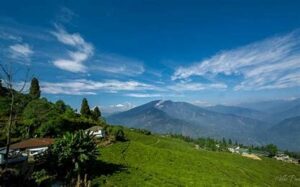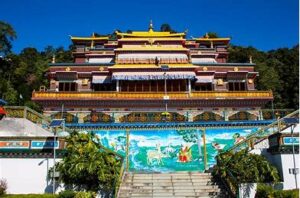A Deep Dive into the Agricultural Rituals and Cultural Significance
The Mising tribe of Assam, one of the largest indigenous communities in the region, recently celebrated the Ali Ai Ligang festival, marking an important occasion in the agricultural calendar. This festival, deeply rooted in the traditions of the Mising people, is a vibrant celebration that not only honors the start of the sowing season but also reinforces cultural identity and unity among the community. Celebrated on the first Wednesday of Fagun, a month in the Assamese calendar, the festival is a blend of rituals, prayers, and community bonding that reflects the agricultural heritage of the Mising tribe.
Understanding the Significance of Ali Ai Ligang
The Ali Ai Ligang festival is an emblematic celebration for the Mising community, symbolizing the beginning of a new agricultural cycle. The name of the festival itself is reflective of its agricultural roots: “Ali Ai” translates to seeds and roots, while “Ligang” refers to sowing. The festival marks a time when the Mising people, who have been primarily dependent on agriculture for their livelihood, prepare for the planting season. This marks a crucial period in their yearly agricultural calendar when they express gratitude to the deities for bountiful harvests and seek blessings for a prosperous sowing season.
The festival is more than just a ritual; it is a manifestation of the bond between the Mising tribe and their land. It signifies their dependence on agriculture, as well as their spiritual connection to the earth. Ali Ai Ligang also represents a time for the tribe to come together, reinforcing their social cohesion. It is not only an occasion to celebrate but also a time for transferring knowledge and traditions from the older generations to the younger ones.
Rituals and Celebrations of Ali Ai Ligang
The celebrations of Ali Ai Ligang begin with the hoisting of the flag, a ceremony called Laitom Tomchar. This marks the official start of the festival and is followed by a series of rituals and offerings to the deities. The Mising people, who follow the Donyi Polo religion (worship of the Sun and Moon gods), perform rituals to honor these deities. The Sun god (Donyi) and the Moon god (Polo) are central to the faith and agricultural practices of the Mising tribe, and their blessings are sought for a good harvest.
Offerings of traditional foods such as Apong (rice beer), dried fish, and meat are presented during the rituals. These offerings are made with the hope of ensuring prosperity for the coming agricultural season. In particular, rice beer, a staple of the Mising culture, plays a central role in the religious ceremonies.
A key aspect of the festival is the celebration of community unity. One of the most notable cultural performances during the festival is the Gumrag dance. This traditional dance involves both men and women dancing together in a rhythmic fashion, symbolizing joy, unity, and the hope for abundance. The dance is often accompanied by traditional music played on instruments such as the dhul, taal, gong, and gagana. These performances encapsulate the spirit of the festival, weaving together music, dance, and tradition in a celebration of life and nature.
An important cultural taboos also accompany the festival. During the celebration, certain agricultural activities like plowing and tree cutting are strictly avoided. This belief stems from the idea that these activities could disrupt the sacredness of the festival and the positive energy required for a successful sowing season.
Evolution and Expansion of the Festival
Originally, Ali Ai Ligang was celebrated within the village boundaries of the Mising community. Traditionally, families gathered in their local villages to perform the rituals, enjoy the cultural performances, and participate in community feasts. Over the years, however, the festival has evolved. With the migration of many Mising people to urban areas for work or study, celebrations of Ali Ai Ligang have expanded into cities like Jorhat and beyond. This urbanization of the festival has allowed people from the Mising community who no longer live in rural areas to reconnect with their roots and heritage.
Despite these changes, the core elements of the festival have remained intact. The flag hoisting ceremony, offerings to Donyi Polo, and the cultural performances are still observed, ensuring that the festival retains its authenticity. This adaptability of the festival to urban spaces while maintaining its deep agricultural and cultural significance is a testament to the resilience of the Mising tribe in preserving their traditions.
The Role of Religion and Spirituality in the Festival
The religious beliefs of the Mising tribe are intricately connected to the natural world, particularly through the worship of Donyi Polo. The tribe’s agricultural practices are greatly influenced by the spiritual connection they share with the Sun and Moon gods. These deities are believed to govern the cycles of nature, and their blessings are sought to ensure the success of the farming season.
The festival reflects the deep-rooted spirituality of the Mising people, as they offer prayers and make ritualistic offerings to these deities. The religious customs are an essential part of the festival, as they bind the Mising people to their traditions and to the earth that sustains them. This reverence for nature, combined with the spiritual aspects of the festival, underscores the importance of ecological harmony in the Mising way of life.
Cultural and Societal Importance of the Ali Ai Ligang Festival
Beyond its agricultural and religious significance, Ali Ai Ligang is a celebration of Mising cultural identity. The festival serves as an important occasion for strengthening the bonds within the community. It fosters a sense of togetherness, unity, and shared purpose among the Mising people, allowing them to come together to celebrate their heritage.
As the Mising tribe has faced various challenges, including migration, modernization, and changing agricultural practices, the Ali Ai Ligang festival has remained a cornerstone of their identity. The festival is an opportunity for the Mising people to reconnect with their cultural roots, especially for younger generations who may have become distanced from traditional farming practices.
The continuation of the festival is also a way for the tribe to assert its cultural independence and pride. It serves as a reminder of the Mising people’s resilience, as they adapt to new circumstances while still preserving their deep cultural traditions. The celebration is a platform for passing down knowledge, stories, and customs to future generations, ensuring that the legacy of the Mising tribe remains vibrant and strong.
Demographics of the Mising Tribe
The Mising tribe belongs to the Tani ethnic group and is primarily found in the northeastern states of India, particularly Assam and Arunachal Pradesh. According to the 2011 Census, the population of the Mising tribe in Assam was approximately 680,424. Traditionally, the Mising people have been a riverine community, relying on agriculture, particularly wet paddy farming, as their primary livelihood. Over time, the Mising tribe has shifted from jhum (shifting) cultivation to more settled forms of farming, allowing them to adapt to changing environmental and economic conditions.
Their agricultural practices, deeply intertwined with their cultural identity, are vital to their survival and prosperity. The Ali Ai Ligang festival, with its focus on the sowing season, serves as a reflection of the tribe’s agricultural importance and its spiritual connection to the land.
Conclusion
The Ali Ai Ligang festival is a vibrant celebration of the Mising tribe’s agricultural heritage, spiritual beliefs, and cultural unity. As the tribe continues to navigate the complexities of modernization and urbanization, the festival remains a vital link to their roots and a symbol of their resilience. Through the rituals, dances, and prayers, the Mising people reaffirm their deep connection to the earth and to one another. Ali Ai Ligang is not just a festival; it is a living expression of the Mising tribe’s cultural pride, spiritual beliefs, and commitment to preserving their traditions for future generations.




